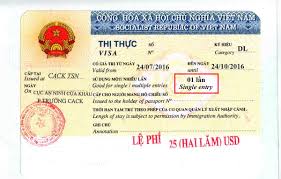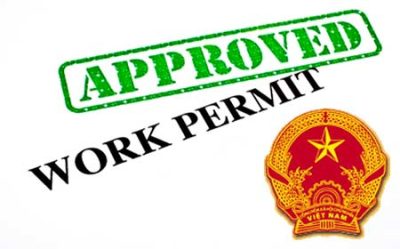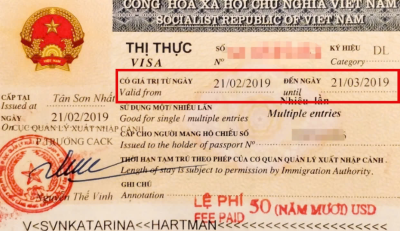With Vietnam’s thriving economy attracting foreign professionals and investors, the demand for legal employment is at an all-time high. Foreign workers planning to work in Vietnam must first navigate the work permit process. Vietnam Visa Express provides an in-depth guide to obtaining a work permit in Vietnam in 2024 for you.
What is a Work Permit in Vietnam? Who needs it?
A work permit in Vietnam is a legal document issued by the Vietnamese Department of Labor, Invalids, and Social Affairs (DoLISA), allowing foreign nationals to work legally in the country. It serves as proof that the individual has been assessed as eligible to work, meeting the required legal, educational, and health standards.
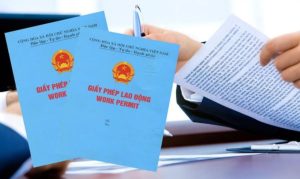
A work permit is typically required for any foreign individual who wishes to work in Vietnam for more than three months. This document is mandatory for most foreign employees, including those in executive, management, and specialized technical roles. However, there are specific exemptions for certain individuals, such as:
1. Investors or capital-contributing members in Vietnamese companies.
2. Spouses of Vietnamese citizens, who may be eligible for work permit exemption.
3. Intra-company transferees within multinational companies.
4. NGO employees working under international cooperation agreements, if eligible.
Without a valid work permit, foreign workers cannot legally work in Vietnam, and employers are prohibited from hiring them. Companies found in violation may face fines or other penalties, making the work permit process essential for compliance.
Requirements for obtaining a Work Permit in Vietnam
To qualify for a work permit in Vietnam, foreign workers must meet several criteria and provide various documents that establish their qualifications and legal eligibility.
Essential documents needed
1. Application form: A standard form issued by the Vietnamese government, usually available through the DoLISA office or online.
2. Passport and visa: Copies of all pages of the applicant’s passport, as well as their entry Vietnam visa, demonstrating lawful entry to Vietnam.
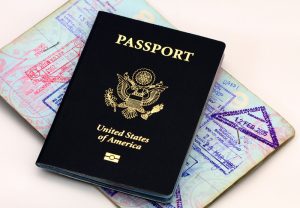
3. Health certificate: A medical certificate issued within six months of application, obtained from a licensed hospital in Vietnam or the applicant’s home country.
4. Criminal record certificate: This document should be issued within six months of the application. Foreign workers are generally required to submit a criminal record from their country of residence or from Vietnam if they have lived in the country for six months or more.
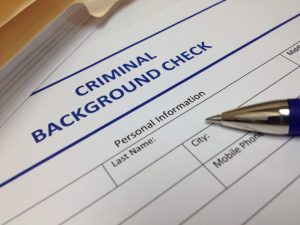
5. Proof of qualifications: Degrees, diplomas, or relevant certificates must be provided and aligned with the job role requirements.
6. Experience certificates: Documentation proving at least three years of experience related to the intended job in Vietnam is often required.
7. Employment contract: The sponsoring employer in Vietnam must provide a legally binding contract.8. Approval letter from the employer: A letter from the employer verifying the job offer and position details.
Eligibility criteria
Vietnam’s work permit eligibility criteria are designed to ensure that foreign workers possess the skills and qualifications required for their specific job roles. The main criteria include:
1. Educational background: Typically, applicants should have at least a bachelor’s degree or an equivalent certificate that is relevant to the job position.
2. Relevant experience: A minimum of three years of related work experience is generally required, particularly for technical or specialist roles.
3. Health requirements: All applicants must have a valid health certificate, demonstrating good physical and mental health and issued within the last six months.

4. Clear legal background: Foreigners must show a clean criminal record from either their home country or Vietnam (if they have resided there).
The application process for Work Permit in Vietnam
Step-by-step guide to applying
The application process typically involves several steps. Although the employer usually initiates and supports the process, the applicant must also be involved to ensure that all requirements are met:
1. Document collection: The applicant gathers all required documents, ensuring proper translation and notarization.
2. Employer submission: The employer submits the application and supporting documents to the DoLISA office in the province where the company is registered.
3. Verification and processing: DoLISA reviews the application, ensuring all criteria are met and documents are authentic.
4. Approval and issuance: If all requirements are fulfilled, the work permit is issued, allowing the foreign employee to work legally in Vietnam.
The application process generally takes between 10 and 20 business days but may vary based on the completeness of the documentation and the specific DoLISA office. Applications should be submitted well in advance to account for possible delays.
Fees and processing time
The fees for work permit applications differ depending on the location and whether the application is for a new permit, a renewal, or a reissuance due to lost or damaged documents. Typical costs for processing can range from USD 50 to USD 100. Processing times usually take between 10 and 20 business days, but early applications are advisable as delays can occur.
Common challenges and tips for success
Troubleshooting common issues
Some of the typical obstacles foreign workers face in the work permit process include:
1. Document errors or omissions
One of the most common issues is incomplete or improperly prepared documents. Ensuring all documents are accurately translated, notarized, and complete is essential for avoiding delays.
2. Unclear regulations
The work permit application requirements can change frequently, making it essential to stay up-to-date on the latest rules and procedures.
3. Processing delays
Processing times vary depending on the DoLISA office and regional volume of applications. Starting the application process early is the best way to avoid delays in receiving the permit.
4. Language barriers
Since applications and documents must be in Vietnamese, foreign workers who do not speak Vietnamese may find it challenging to navigate the requirements. Using a professional translation service or consulting with a Vietnamese-speaking colleague can help.
Seeking assistance for your Work Permit in Vietnam
For those unfamiliar with the Vietnamese work permit process, professional assistance from immigration consultants or legal experts can be invaluable. These professionals offer comprehensive support, including:

Immigration consultants can help you obtain work permit in Vietnam.
1. Document verification: Consultants can verify document completeness, ensuring translations and notarizations meet Vietnamese requirements.
2. Regulatory updates: A legal consultant can inform you of the latest work permit regulations and help avoid pitfalls due to outdated information.
3. Application tracking: Many consultants handle the entire submission and follow-up process, ensuring timely communication with DoLISA.
Most larger Vietnamese companies have specialized human resources or legal teams experienced in managing work permit applications for foreign staff, so foreign employees should consider consulting with their employer first to understand the resources available.
In conclusion, securing a work permit in Vietnam is essential for legal employment and helps both foreign professionals and local companies comply with Vietnamese law. By preparing in advance, ensuring all documentation is accurate, and seeking professional assistance when needed, foreign applicants can simplify the process and focus on their work and life in Vietnam.

